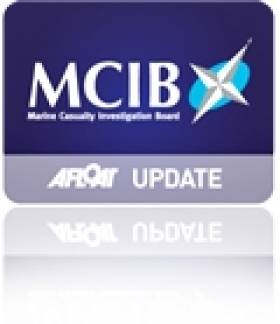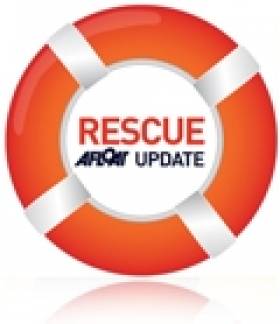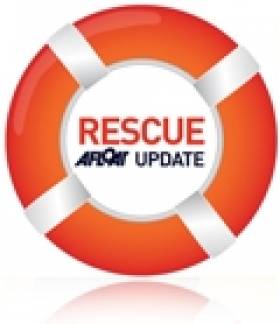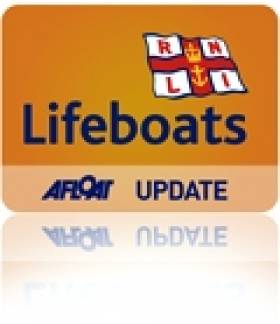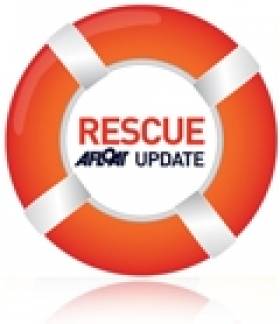Displaying items by tag: Clogherhead
#MCIB - The Marine Casualty Investigation Board (MCIB) has recommended that the Government review standards for activity centres involved in marine sports, following its report into an incident off Co Louth in May 2011.
Seven sixth-class pupils from St Brigid's Girls National School in Glasnevin were stranded in the water when their kayaks capsized in rough conditions near the Neptune Outdoor Centre in Clogherhead on 26 May last year.
Six of the girls were rescued by the RNLI Clogherhead lifeboat, while a seventh who had been separated from the group managed to reach the shore with some difficulty. No injuries were reported in the incident.
Among its findings, the MCIB concluded that as it had no official affiliation with either the Irish Sailing Association or the Irish Canoe Union, the Neptune Outdoor Centre - which has since ceased trading - was effectively unregulated with no monitoring of staff or operations.
It was also found that the instructor on the day had no formal qualifications in taking charge of a group of young people on the water, despite many years of experience in marine sports.
Moreover, there was no support boat available to mount a rescue attempt, a number of the pupils involved had ill-fitting buoyancy aids, and the weather conditions at the time of the incident were not conducive to taking a group of novices out on the water.
It was noted that some of the pupils involved credited a water safety course with helping them to take the right course of action when in the water, such as staying with their craft and floating with the waves on their backs.
The MCIB recommends that the Minister for Transport, Tourism and Sport reviews the existing arrangements for marine-based activity centres, and in particular develop standards for safety management (including weather checks, pupil-to-teacher ratio, etc), safety equipment (lifejackets, VHF radios, etc) and instructor qualifications.
The full report is available as a PDF from the MCIB website HERE.
#MCIB - The families of two fishermen found dead at sea off the Skerries last April may never uncover the circumstances that led to their demise. But the official report into the incident indicated that the absence of lifejackets was a significant contributing factor.
Ronan Browne (26) and David Gilsenan (41) were reported missing on the evening of 1 April after failing to return from a trip tending to lobster pots.
Their vessel, Lady Linda, was found the following morning upturned in an oil slick off Clogherhead with no sign of the crew.
It wasn't until a week later that their bodies were discovered caught in the vessel's fishing gear some five miles east of Clogherhead, as previously reported on Afloat.ie.
Post-mortem results found that both men died from drowning, with Gilsenan also showing signs of hypothermia.
With no eyewitnesses to the incident, the report by the Marine Casualty Investigation Board (MCIB) indicated a number of possible causes from eqiupment malfunction or shifting of lobster pots on deck, to the wave height and weather conditions on the day, which were reportedly deteriorating when the boat left port.
It also said that Browne and Gilsenan "were lifelong friends, both men were experienced and qualified marine engineers in the fishing vessel industry. Both men were experienced in boat handling and fishing and had worked together on many occasions."
But the report emphasised the lack of personal flotation devices (PFDs) on board, and noted that emergency equipment was stored under the deck and not easily accessible.
The MCIB's recommendations include a review of the code of practice for fishing vessels under 15m to establish "revised stability critera" and ensuring that all boats are fitted with automatic radio beacons that deploy upon capsize.
In a separate incident, lack of proper maintenance led to an unlicenced boat taking on water off Co Kerry last August.
The Claire Buoyant was carrying one crew, five passengers and 21 sheep from Beginish Island to Ventry when the vessel began to lose stability.
Skipper Eoin Firtear - who the MCIB described as having "limited sea-going experience" - and his five passengers were rescued by passenger ferry. All sheep were jettisoned overboard, with 18 eventually recovered.
The report reminded that the carriage of livestock should only be undertaken in appropriately certified vessels.
- MCIB
- Marine Casualty Investigation Board
- report
- Lady Linda
- Clogherhead
- Ronan Browne
- David Gilsenan
- lobster pots
- Fishing
- drowning
- hypothermia
- missing
- malfunction
- wave height
- Weather
- lifejackets
- Personal Flotation Devices
- PFDs
- Code of Practice
- stability
- Radio
- beacon
- maintenance
- unlicenced
- Co Kerry
- Claire Buoyant
- Sheep
- Passengers
- Beginish Island
- Ventry
- Eoin Firtear
- Skipper
- Rescue
- Livestock
Body Recovered Off Dublin Thought to Be Missing Fisherman
#RESCUE - The Evening Herald reports that a body recovered 14km off the coast of north Dublin on Sunday is believed to be that of a missing fisherman.
The grisly find was made by the fishing vessel Rath Eilte in the waters off Skerries. A post-mortem was set to be carried out yesterday to determine the cause of death.
Found fully clothed in black and yellow oilskins, the remains are thought to be those of a Ukrainian in his 30s, a crewman on the Kilkeel-registered Zenith who was reported missing some 14.5km off Clogherhead in Co Louth on 29 January.
Search for Fisherman in Irish Sea Enters Second Day
#RESCUE - The Irish Times reports that the search has resumed for a fisherman who fell overboard from a trawler in the Irish Sea yesterday.
The crewman of the Kilkeel-registered fishing vessel Zenith was reported missing some nine miles (14.5km) off Clogherhead, Co Louth.
Yesterday afternoon the Irish Coast Guard and Clogherhead RNLI began an air and sea search and rescue effort, assisted by coastguard helicopter and other lifeboats and vessels in the area.
The Irish Times has more on the story HERE.
Body of Fisherman Found in Castletownbere
The body of a fisherman reported missing from a trawler at Castletownbere, Co Cork yesterday morning has been recovered.
Local divers teamed with the Castletownbere Lifeboat and the Irish Coast Guard for a search that ended around 1.30pm when the body of the 43-year-old was found in the water close to the pier.
The Irish Times reports that the man, who resident in Clogherhead, Co Louth, had been socialising with friends the night before and failed to return to the Patrick C, the trawler on which he was a crewman.
Skerries Search Called Off as Bodies of Fishermen Found
The bodies of two fishermen missing off the Skerries coast since last Friday have been found.
Ronan Browne, 26, and David Gilsenan, 41, had not been seen since setting out from Skerries harbour on the morning of 1 April.
As previously reported by Afloat.ie, the alarm was raised when they had failed to return by 6.30pm and a coast guard search began immediately.
Naval vessels joined the operation as the search continued following the discovery of an upturned hull and an oil slick near Clogherhead, Co Louth.
According to RTÉ News, at 1.40am yesterday morning a fishing vessel discovered the bodies of the two men caught in its fishing gear some five miles east of Clogherhead. They were recovered by RNLI lifeboat.
RTÉ News has more on the story HERE.


























